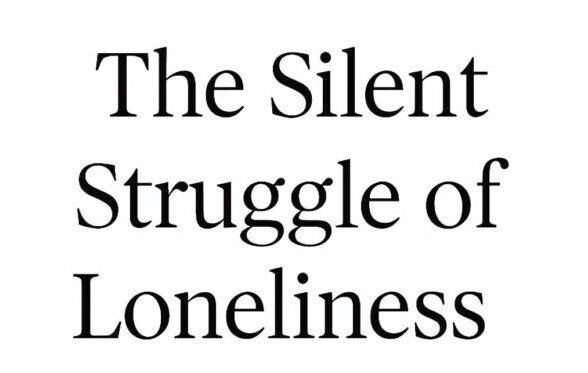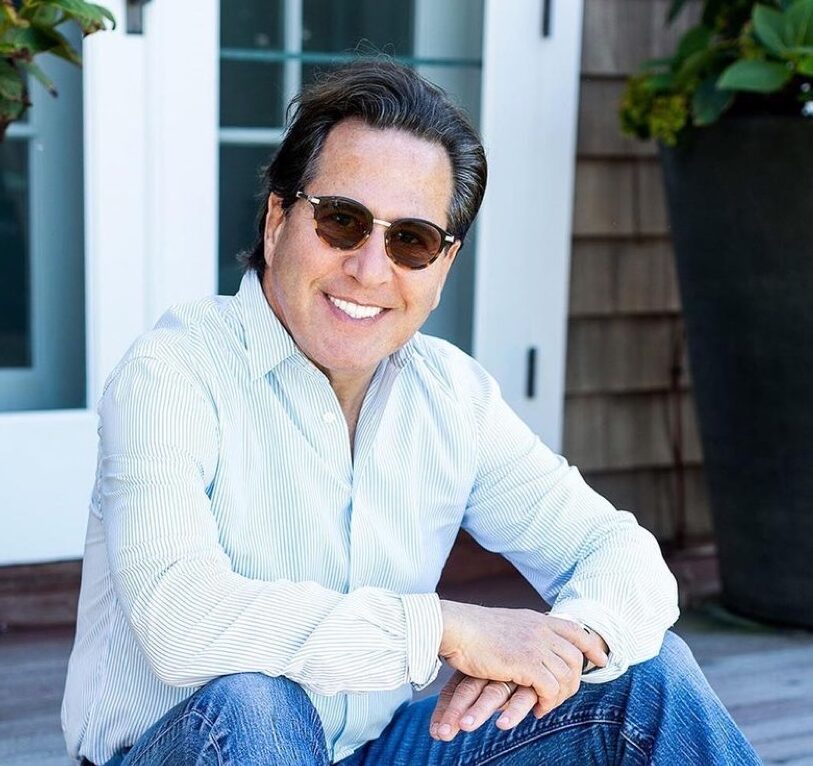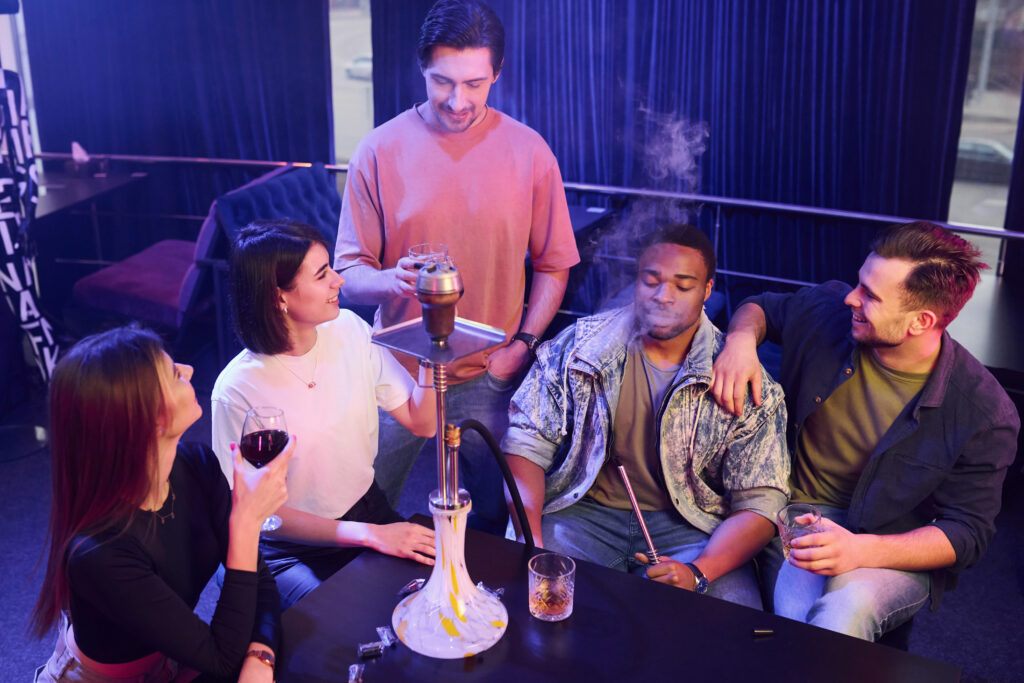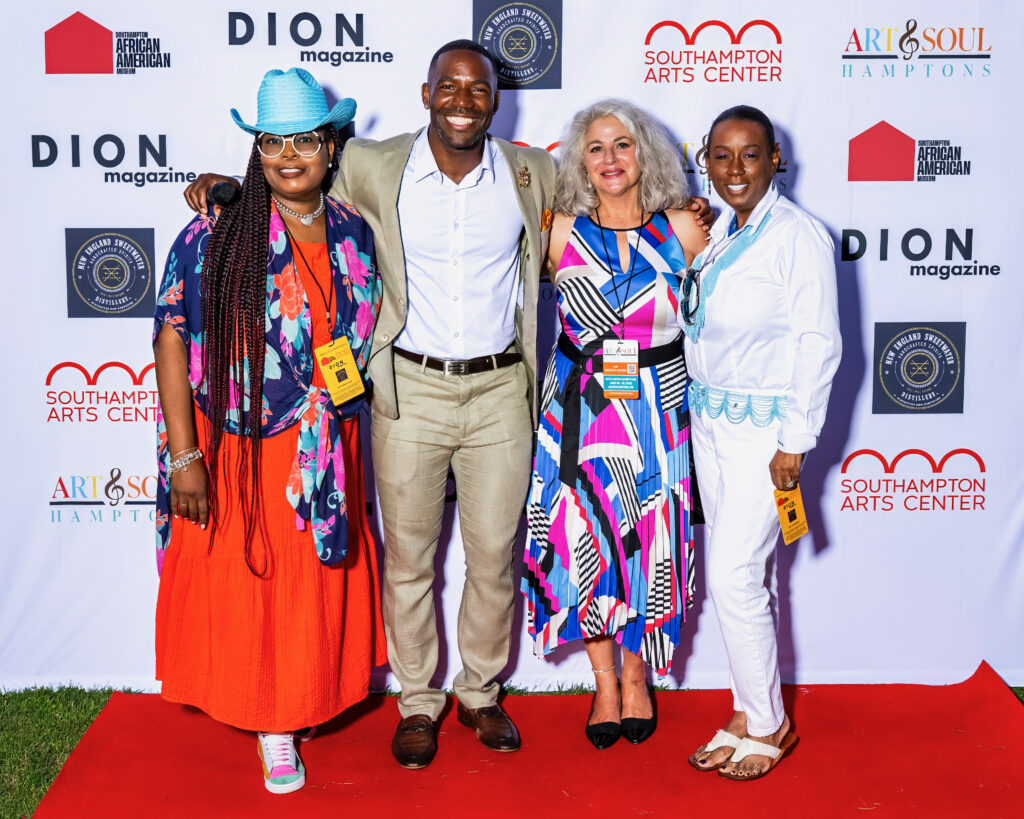
Art & Soul: Where Culture, Flavor & Black Joy Took Center Stage in the Hamptons
Let’s keep it real — ART & SOUL: Hamptons didn’t just return this year. It showed out.
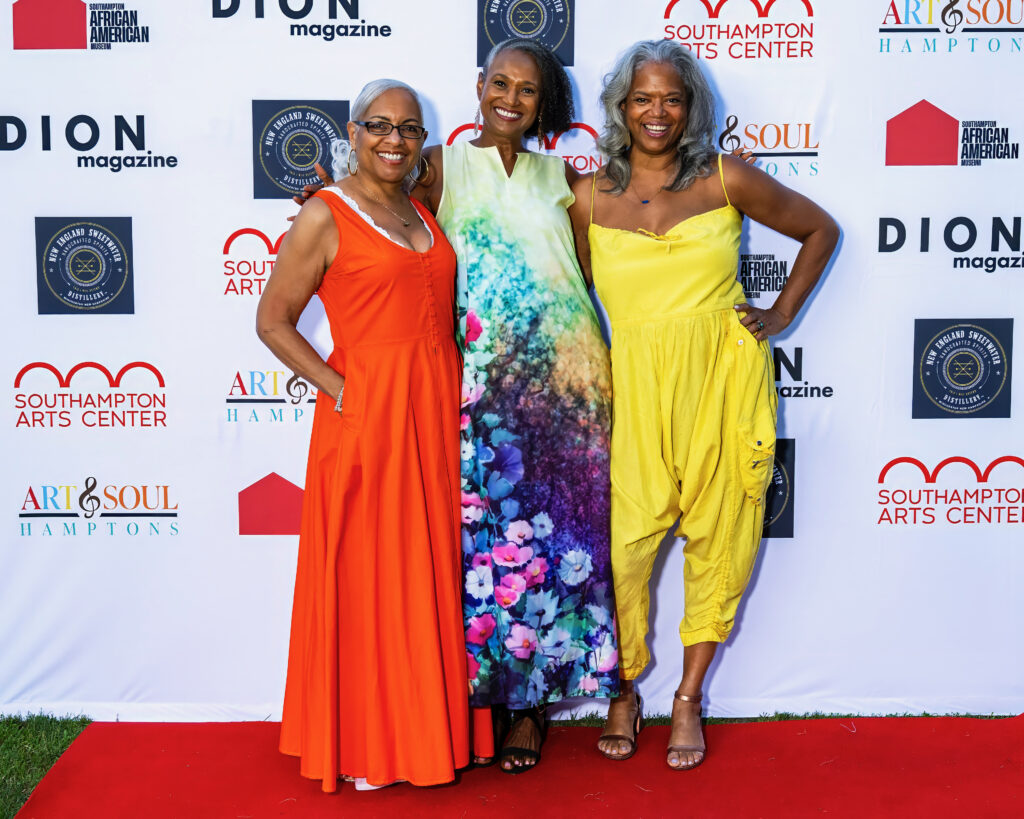
From July 18–20, the East End was alive with color, culture, and connection as this sold-out, three-day celebration spotlighted the brilliance of Black creativity. We’re talking visual art, Caribbean soul food, live music, crafted cocktails, and thought-provoking conversations — all wrapped in a weekend that radiated joy from start to finish.
And when I say this event had layers? I mean layers.
✨ Visual artists like Reynoir Lewis, Laura R. Gadson, and Suliman Onque lit up the outdoor exhibitions with bold, breathtaking work.
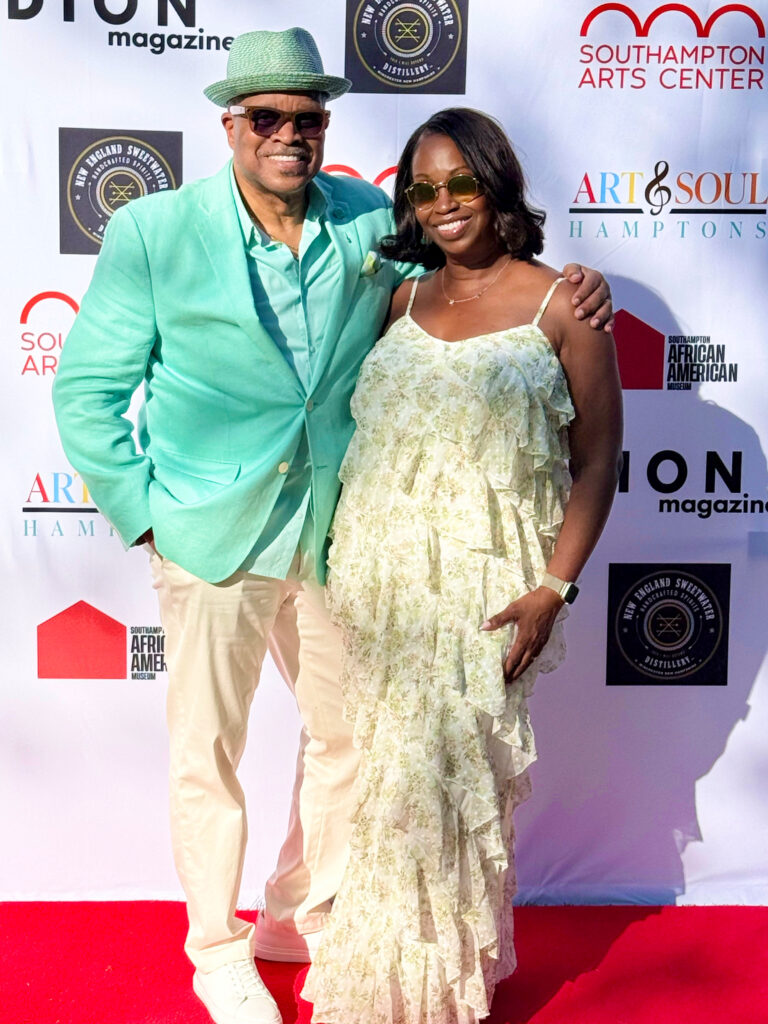
✨ Photographer Kurt Leggard (yep, that’s my husband!) captured the magic of the red carpet, from the glow-ups to the candid moments of joy.
✨ Music floated through the air — with flutist Dwayne Kerr (of Erykah Badu’s band), master kora player Yacouba Sissoko, SIYA African Band, and DJ Infmatick setting the tone.
And y’all already know my favorite part: Friday night’s Culinary Tasting & Film Night. The flavors were bold, the chefs brought the heat (shoutout to Chara’s Kitchen, SMAC, Infusery, and more!), and the screening of ERASED — narrated by Idris Elba — hit deep. It was powerful, moving, and necessary. The talkback, moderated by Brenda Simmons of the Southampton African American Museum, opened the floor to the kind of conversations that stick with you long after the credits roll.
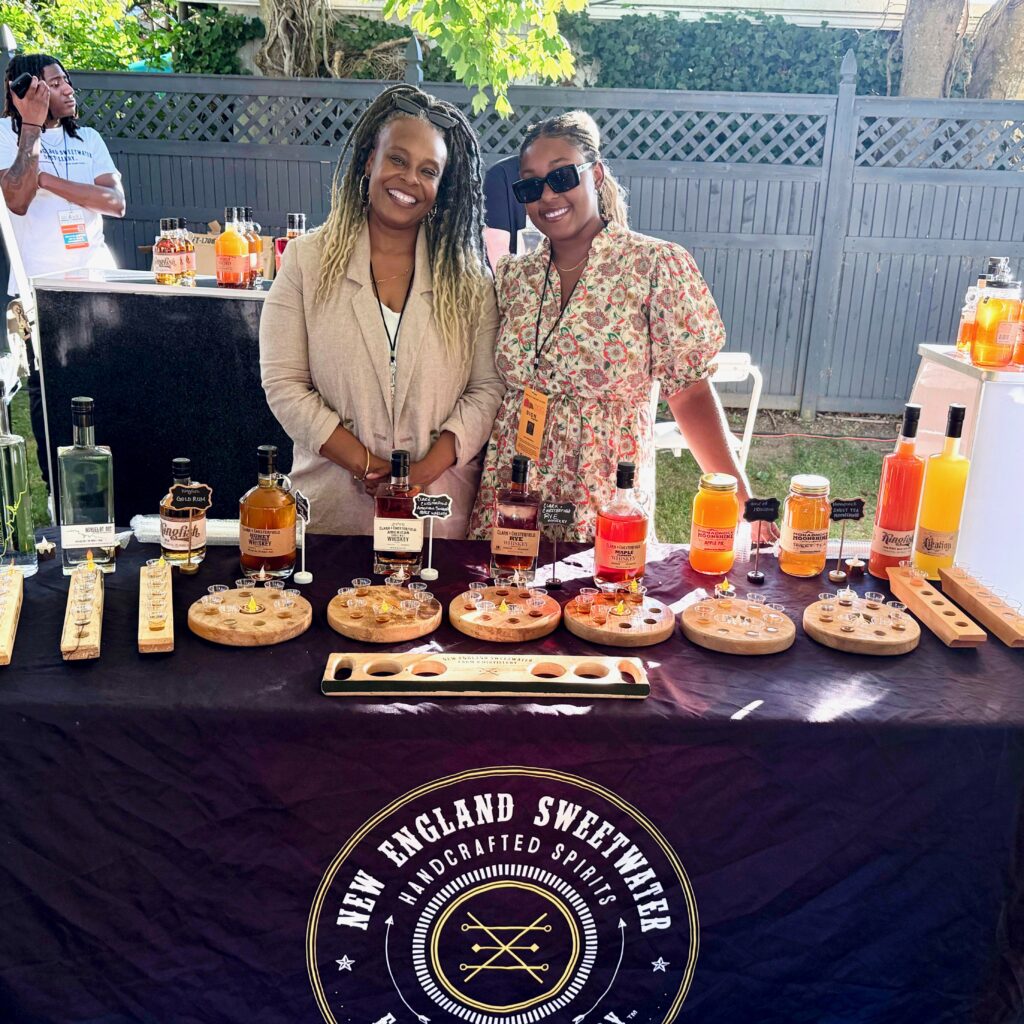
Throughout the weekend, guests sipped on curated cocktails and moonshine from New England Sweetwater Farm & Distillery (yes, moonshine!), and toasted with HRLM Champagne and wines from Charles Springfield’s stylings. And let’s not forget the soulful wellness sips and bites from PAIJA Tea Co., Happy Bubble Soda, The Nourish Spot, and more.
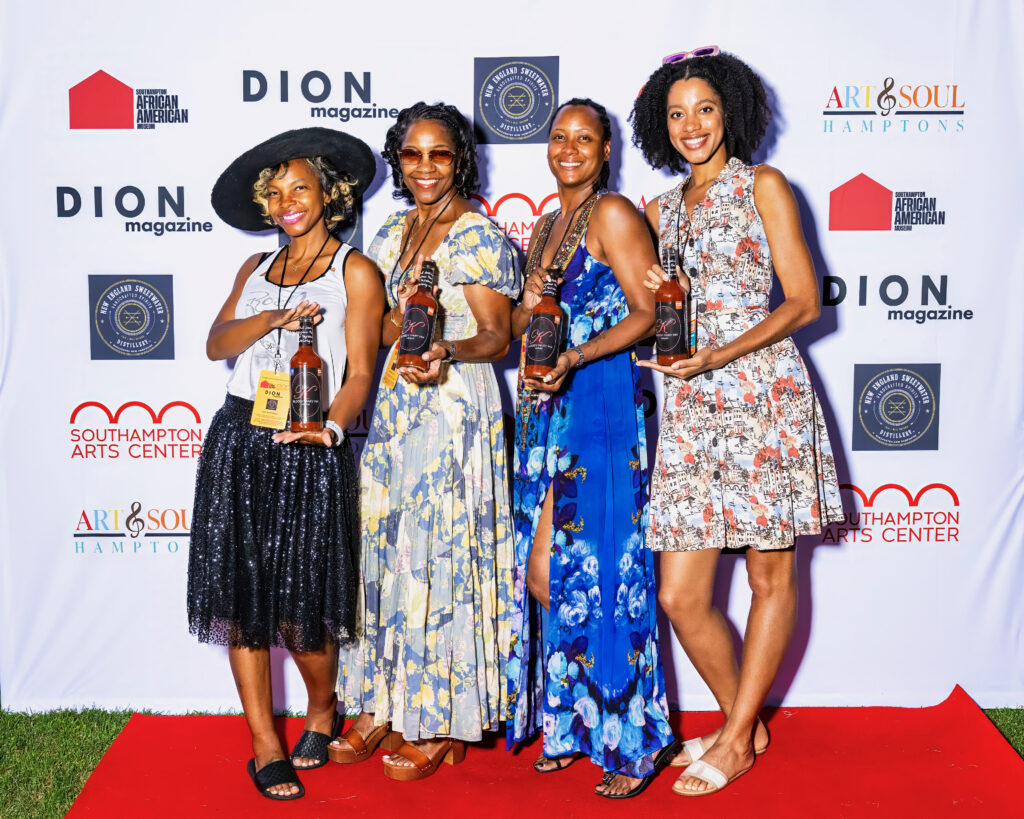
The vibes? Immaculate. The crowd? A mix of tastemakers, artists, philanthropists, and real-deal community leaders. Names like actress Novi Brown (BET’s Sistas), Peter Marino, Vanessa Gordon, Dr. Georgette Grier-Key, and yes, me (Vanessa Leggard of Hamptons MouthPiece!) came out to celebrate.
But this event wasn’t about the names. It was about the energy. The joy. The community. The real talk, real People

As festival producer Yaya Reyes put it best, “ART & SOUL is not just an event — it’s a declaration of presence, purpose, and power.”
And that’s exactly what it felt like.
From the luxe florals by April & Ashley to the curated gift bags filled with purpose-driven Black-owned brands — everything felt intentional, elevated, and full of soul.
This was a weekend that didn’t just entertain — it uplifted. It honored the past, celebrated the present, and poured into the future of Black excellence in the arts, food, and beyond.

If you missed it this year, don’t worry — Art & Soul is just getting started. Follow @ArtAndSoulHamptons to stay plugged in.
Because around here, we do more than show up.
We celebrate, we support, and we shine.
Hamptons MouthPiece; Real Talk. Real People. From NYC to the East End.


